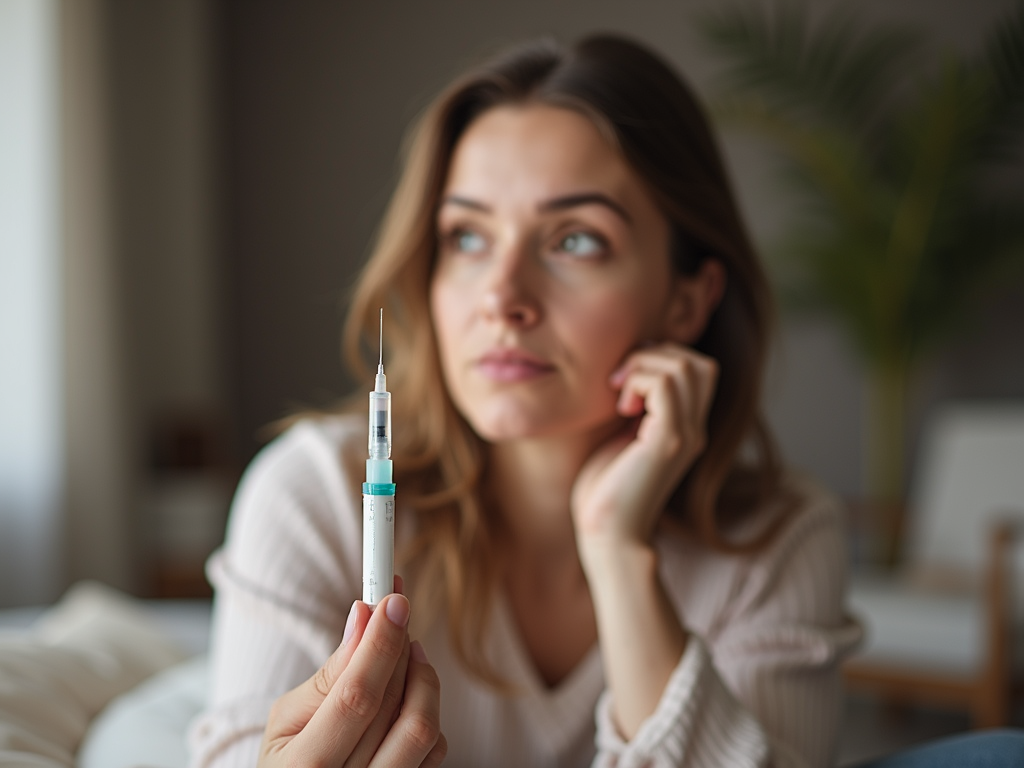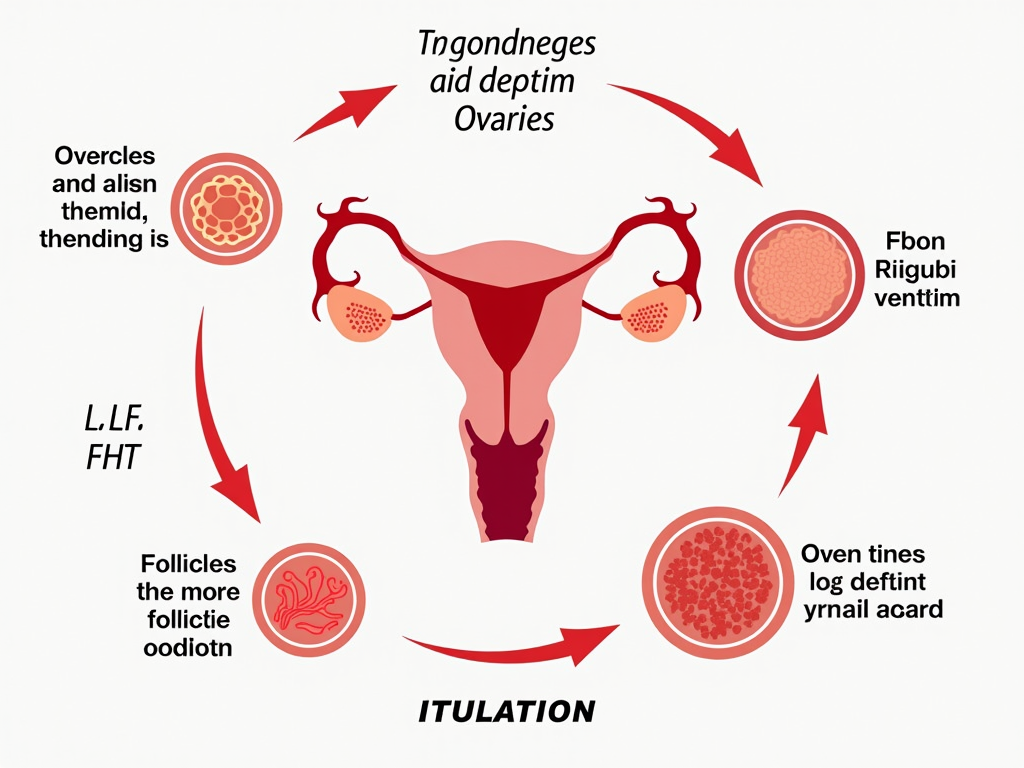Understanding the Common Side Effects of Fertility Drugs
April 21, 2025, 8:39 a.m.
Fertility drugs are a beacon of hope for many couples struggling with infertility. They can help stimulate ovulation, increase the chances of conception, and ultimately, bring the joy of parenthood. However, like any medication, fertility drugs come with potential side effects. Understanding these side effects is crucial for anyone considering or currently undergoing fertility treatment. In this article, we'll explore the common side effects of fertility drugs, with a particular focus on gonadotropins and how they affect ovulation. We'll also share personal insights and expert knowledge to help you navigate your fertility journey.

When I first started my fertility journey, I was overwhelmed by the amount of information—and misinformation—out there. I remember sitting in my doctor's office, listening to her explain the different types of fertility drugs and their potential side effects. It was a lot to take in, but I knew I had to educate myself to make informed decisions. One of the most common types of fertility drugs is gonadotropins. These are hormones that stimulate the ovaries to produce eggs. But how exactly do they work, and what side effects can they cause?
Gonadotropins are synthetic versions of the hormones FSH (follicle-stimulating hormone) and LH (luteinizing hormone), which are naturally produced by the pituitary gland. In a typical menstrual cycle, FSH stimulates the growth of follicles in the ovaries, each containing an egg. As the follicles grow, they produce estrogen, which signals the pituitary gland to release LH, triggering ovulation. Gonadotropins mimic this process, helping to stimulate the ovaries when natural hormone levels are insufficient.

While gonadotropins can be incredibly effective, they also come with a range of potential side effects. Some of the most common include: - Ovarian Hyperstimulation Syndrome (OHSS): This is perhaps the most well-known side effect. OHSS occurs when the ovaries become swollen and painful due to the overstimulation from the drugs. Symptoms can range from mild bloating and discomfort to severe cases requiring hospitalization. - Multiple Pregnancies: Fertility drugs increase the chances of releasing multiple eggs, which can lead to twins, triplets, or more. While some may see this as a blessing, multiple pregnancies carry higher risks for both the mother and the babies. - Mood Swings and Emotional Changes: Hormonal fluctuations can lead to mood swings, anxiety, and depression. I remember feeling like I was on an emotional rollercoaster during my treatment. - Injection Site Reactions: Since many fertility drugs are administered via injection, it's common to experience redness, swelling, or bruising at the injection site. - Headaches and Fatigue: These are also common side effects, likely due to the hormonal changes and the stress of the treatment process.
It's important to note that not everyone will experience these side effects, and their severity can vary widely. During my treatment, I was fortunate to have only mild side effects, but I know others who had more challenging experiences. That's why it's crucial to work closely with your healthcare provider to monitor your response to the drugs and adjust the treatment plan as needed.

Beyond the physical side effects, fertility drugs can also take a toll on your mental and emotional well-being. The process of trying to conceive, especially when it involves medical intervention, can be incredibly stressful. I found that joining support groups and talking to others who were going through similar experiences was immensely helpful. It reminded me that I wasn't alone and that there was a community of people who understood what I was going through.
In addition to gonadotropins, there are other types of fertility drugs, each with their own set of side effects. For example: - Clomiphene Citrate (Clomid): This oral medication stimulates ovulation by blocking estrogen receptors in the brain, which tricks the body into producing more FSH and LH. Common side effects include hot flashes, bloating, and mood swings. - Letrozole (Femara): Originally used for breast cancer treatment, letrozole is sometimes used off-label for ovulation induction. Side effects can include fatigue, dizziness, and headaches. - Metformin: Often used for women with polycystic ovary syndrome (PCOS), metformin helps regulate insulin levels and can aid in ovulation. Side effects may include gastrointestinal issues like nausea and diarrhea.
It's essential to discuss all potential side effects with your doctor before starting any fertility treatment. They can help you weigh the benefits against the risks and determine the best course of action for your specific situation. Remember, every person's body reacts differently to medications, so what works for one person may not work for another.

Managing side effects is a crucial part of the fertility treatment process. Here are some tips that I found helpful: - Stay Hydrated: Drinking plenty of water can help alleviate some symptoms of OHSS and keep you feeling better overall. - Rest and Relaxation: Make time for rest and activities that help you relax, whether it's reading, watching a movie, or taking a warm bath. - Healthy Diet: Eating a balanced diet can help support your body during treatment. Some people find that certain foods can exacerbate or alleviate side effects. - Communication: Keep an open line of communication with your healthcare provider. Don't hesitate to report any side effects or concerns you may have. - Support System: Lean on your partner, family, and friends for emotional support. Consider joining a support group or seeking counseling if needed.
It's also important to be aware of the signs of more serious side effects that may require immediate medical attention. For example, severe abdominal pain, difficulty breathing, or sudden weight gain could indicate a severe case of OHSS. Always err on the side of caution and contact your doctor if you're unsure.
In conclusion, while fertility drugs can be a powerful tool in the journey to parenthood, they are not without their challenges. Understanding the common side effects, particularly those associated with gonadotropins and their impact on ovulation, is essential for anyone considering or undergoing fertility treatment. By educating yourself, working closely with your healthcare provider, and taking care of your physical and emotional well-being, you can navigate this journey with greater confidence and resilience.